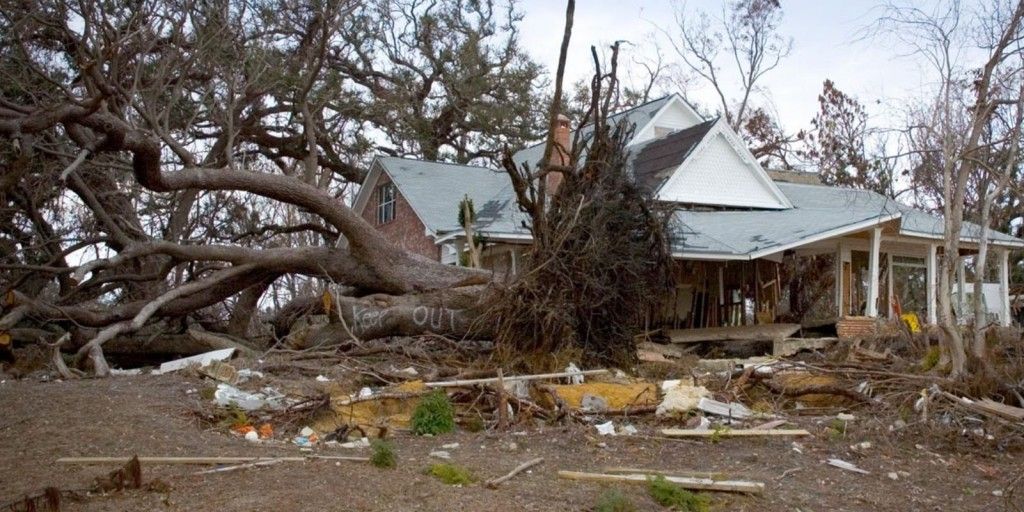As the sky darkens and winds gust at speeds exceeding 155 miles an hour, Mother Nature dumps torrential sheets of rain for 400 miles in every direction. An oceanic low-pressure system, better known as a tropical cyclone or hurricane, rushes toward land. In its wake, thunderstorms erupt, tornadoes spawn, and storm surges threaten land with massive flooding and landslides.
Taming the Beast
This familiar scene hammers our nation’s coastal regions year after year, bringing illness, injury, death and devastation.
But the approach of hurricane season from June to November doesn’t have to threaten your home, life or well-being—if you take some basic steps toward preparation.
Getting Prepared
Although it’s almost impossible to predict the damage from a natural disaster, planning helps counter the aftermath, experts say.
“A lot of people think they’re prepared,” said Tully Lehman, a spokesman for the Insurance Information Network of California. “But they aren’t.”
Preparation means formulating a plan of action ahead of time; then following it before, during and after an impending hurricane hits.
Before Disaster Strikes
The American Red Cross and the Centers for Disease Control recommend following these steps to prepare your family, home, pets and finances for impending disaster:
- Draft an evacuation plan, mapping out your route inland toward safety and shelter.
- Establish an out-of-town contact for family communication in case of separation during evacuation.
- Assemble a disaster supply kit containing medications and first aid; a 3-5 day supply of non-perishable food and a non-electric can opener; at least 3 gallons of water per person; protective clothing, bedding and sleeping bags; a battery-powered radio, flashlight and extra batteries; water-purifying supplies like chlorine or bleach; disposable cleaning cloths for bathing; personal hygiene items such as soap, toothpaste and shampoo; and special items for infants, elderly or disabled family members.
- Post emergency phone numbers by every phone, and make sure your children know how to use 9-1-1.
- Create a plan for your pets; animals are not allowed in public shelters.
- Keep your trees trimmed of dead or weak branches to minimize glass damage to your home.
- Buy permanent shutters or precut ½ inch plywood to protect your home’s windows and doors. Pre-drill holes every 18 inches for screws.
- Move or secure anything that can be picked up by the wind and become a projectile.
- Leave yourself written instructions on how to turn off the electricity, gas and water to your home.
- Locate and secure important papers outside your home, including a home inventory and supporting documents, insurance policies, wills, licenses and stocks.
- Check into flood insurance with your local insurance agent, as flood damage is usually not covered by homeowners insurance. (Keep in mind the 30-day waiting period before your policy takes effect.)
In the Eye of the Storm
Knowing what to do—and then doing it—can mean the difference between life and death in the path of a hurricane.
It is vitally important that you stay constantly tuned to a local radio station for official reports and instructions, and follow them exactly.
If you’re told to weather the storm:
- Stay inside your home, away from windows and doors. Injury from shattered glass presents a real threat to your safety.
- Seek shelter in a bathroom or basement. Do not go outside, even if the weather appears to calm. You could be in the “eye,” or middle of the hurricane, where winds quell and rain subsides.
- Be prepared to evacuate at the urging of local authorities, or if your home is damaged and your safety compromised.
If you must leave the area for your own safety:
- Do it! Your home and possessions are replaceable—but your life isn’t!
- Secure any items outside which could damage your home or property
- Cover your windows and doors.
- Follow disaster plans established for your pets.
- If you have time, turn off your home’s gas, electricity and water, and disconnect your appliances to reduce the chance of electrical shock when the power is restored.
- Grab your disaster supply kit and fill your car with gas.
- Follow your predetermined evacuation plan, listening for disaster sirens and warning signals along the way. Be prepared to drive 20-50 miles in heavy traffic.
Protecting what’s important is possible. In the process, you’ll arm yourself for survival—and success.
The Final Result
When the danger subsides, survey the damage. If you’ve left the scene, return only if and when you’ve been told it’s safe to do so.
Then, the Federal Emergency Management Agency (FEMA) recommends you:
- Stay tuned to local radio for more information.
- Help injured or trapped persons as you can, giving first aid where appropriate.
- Drive only if absolutely necessary, avoiding flooded roads and washed-out bridges.
- Proceed through or enter your home with caution, avoiding loose or dangling power lines and watching for snakes, insects and animals driven to higher ground by high water.
- Open windows and doors to ventilate and dry your home.
- Inspect utilities for gas leaks and electrical, sewer and plumbing damage.
- Check refrigerated foods for spoilage.
- Boil tap water before drinking or cooking, or use bottled water.
- Take pictures of damage to both the house and its contents for insurance purposes.
- Check your home inventory for missing items.
- Contact your insurance agent to file a report.
Surviving the Aftermath
Even with insurance coverage, many homeowners find themselves scrambling when a disaster strikes, Lehman says. Many policyholders haven’t updated their coverage in many years. As a result, they find themselves underinsured during a crisis like this.
But with some forethought, preparation, and a little work on your part, an encounter with a hurricane doesn’t have to threaten your home, life or well-being.
So get educated, get prepared, and talk to your insurance agent for the best financial protection available. Nothing goes further toward reducing fear, anxiety and loss.
